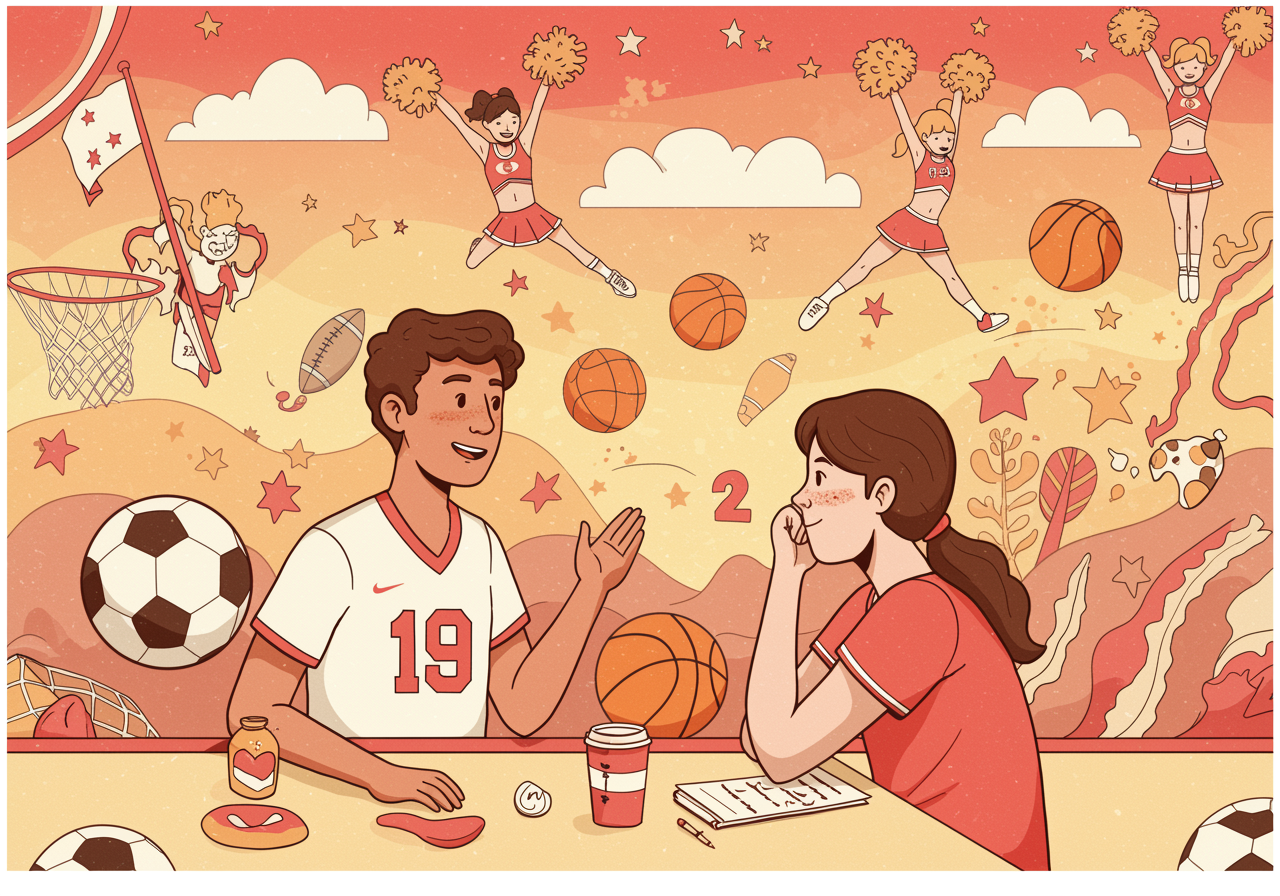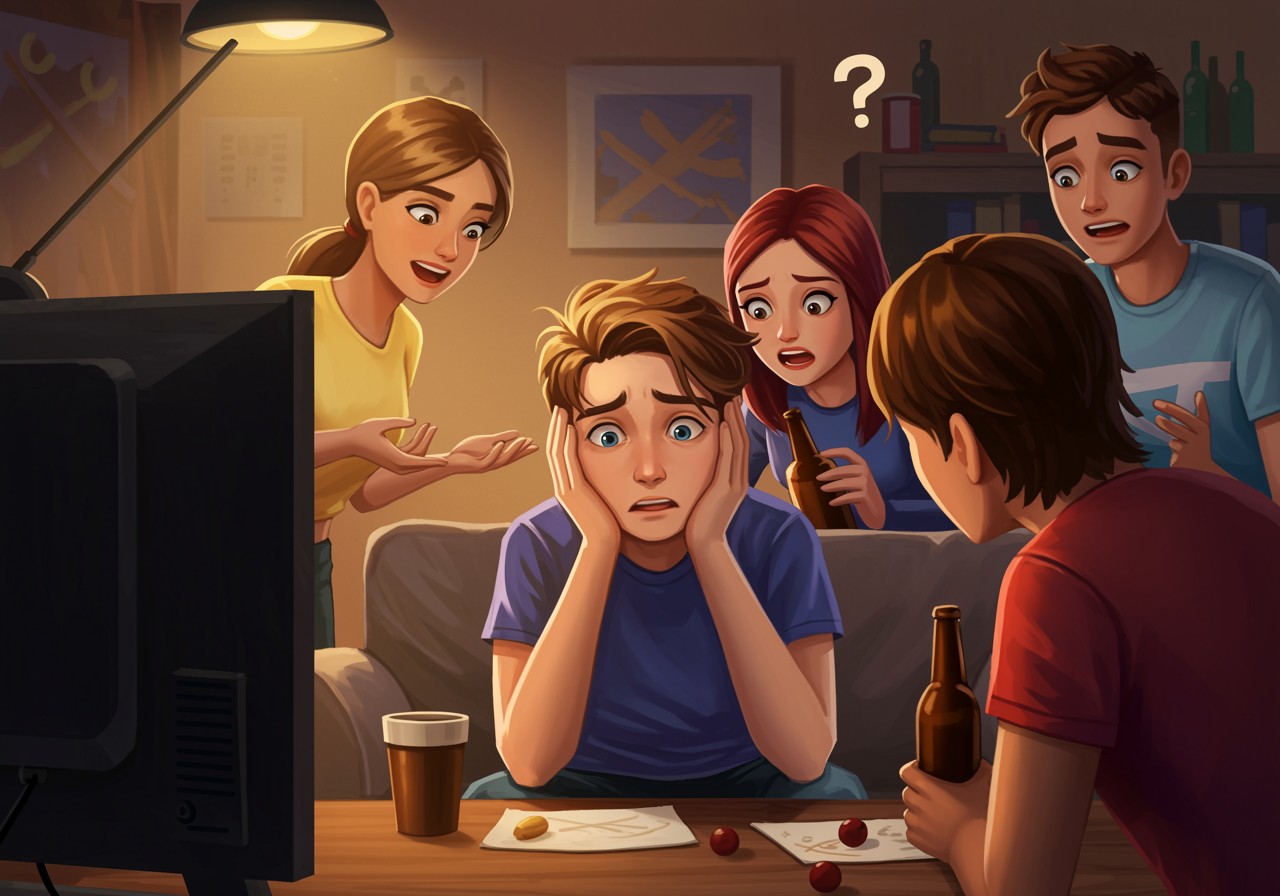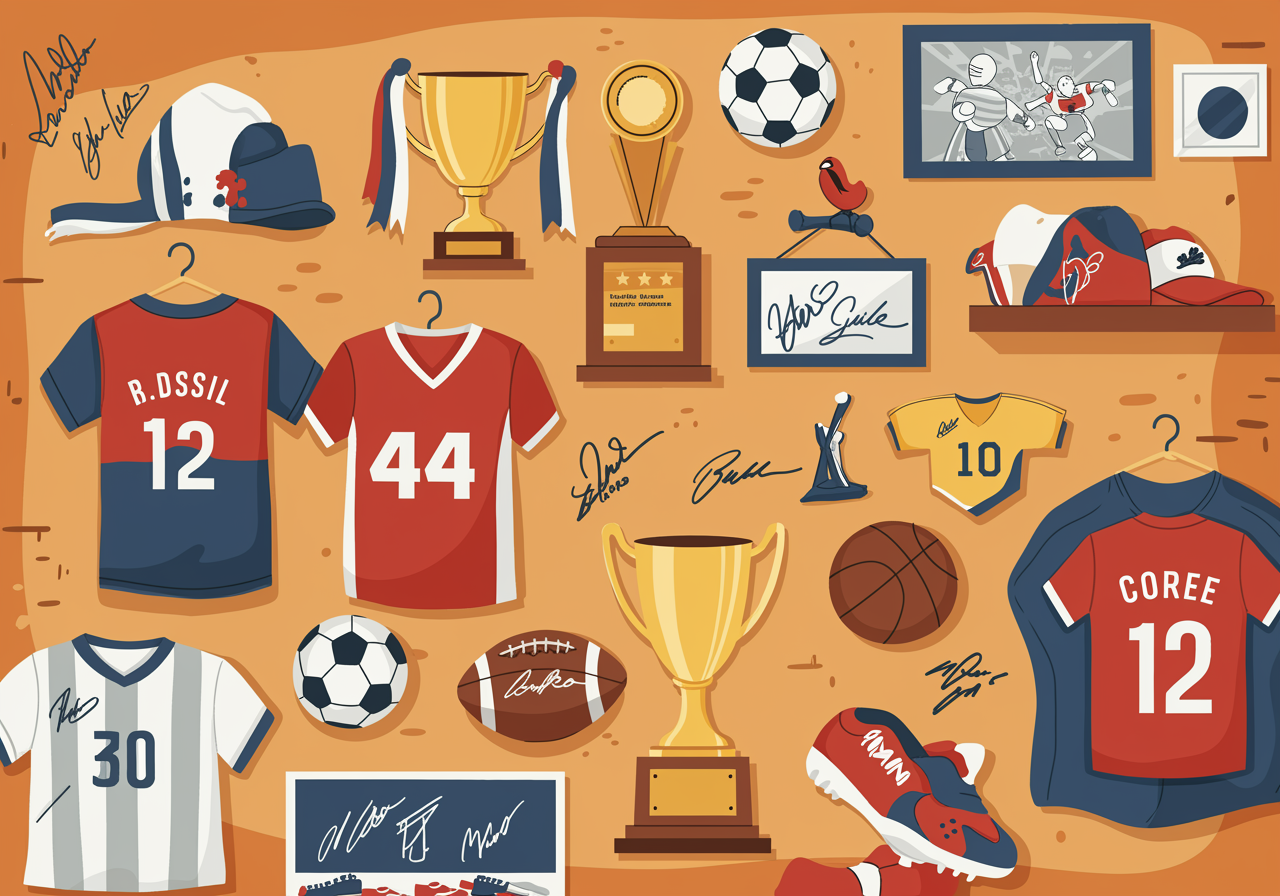Sports Heroes: Why We Look Up to Athletes and What It Means for Young Fans
Exploring the power and pitfalls of athletic role models in your teen’s world
Discover why your teen idolizes sports stars and how to guide healthy conversations about heroes, expectations, and real-life inspiration.
Overview
Your teenager probably has a favorite athlete whose jersey they'd love to own, whose games they never miss, and whose achievements they can recite from memory. This hero worship isn't just about sports—it's about hope, inspiration, and the very human need to believe in something bigger than ourselves. But when athletes stumble or make mistakes, it can shake a young fan's world. Understanding why we elevate sports figures to superhero status helps families navigate the ups and downs of fandom while building realistic expectations about what it means to be human.

Understand in 30 Seconds
Get up to speed quickly
- We're Wired to Admire Achievement: Humans naturally look up to people who push physical and mental limits. Athletes represent what's possible when talent meets incredibly hard work.
- Sports Stars Become Symbols: Athletes often represent more than just athletic ability—they symbolize perseverance, overcoming obstacles, and achieving dreams against the odds.
- The Inspiration Can Be Real: Many young people find genuine motivation in athletic stories, pushing themselves harder in school, sports, or personal goals because of what they've witnessed.
- But Athletes Are Still Human: When we put athletes on pedestals, we sometimes forget they make mistakes, have bad days, and face the same human struggles as everyone else.
Real Life Scenario
Situations you can relate to
Imagine your favorite musician suddenly couldn't sing anymore, or your favorite video game creator stopped making games. You'd probably feel disappointed, right? That's similar to what happens when young fans watch their sports heroes. Think about when a star player gets injured, retires, or makes a poor choice off the field. Your teen might feel confused, angry, or even betrayed. It's like finding out Superman has a weakness—except this is real life. The key question becomes: Can we still learn from someone who isn't perfect? And how do we separate the inspiration an athlete provides from expecting them to be flawless in every area of life?

Role Play
Spark a conversation with “what if” scenarios
What if your favorite athlete got caught cheating in their sport?
- Role play: Take turns being a disappointed fan and a friend helping them process the news. Practice talking through feelings of betrayal while finding ways to separate the person from their achievements.
What if you could meet your sports hero but they turned out to be rude or unfriendly?
- Role play: Role-play the meeting, then discuss how someone can be talented at their job but not perfect as a person. Explore whether you can still admire their skills.
What if your friend started copying everything their favorite athlete did, good and bad?
- Role play: Practice being the concerned friend who helps them think critically about which behaviors are worth copying and which aren't.
FAQs
Frequently asked questions people want to know
Is it bad for my teen to have sports heroes?
Not at all! Sports heroes can provide incredible motivation and inspiration. The key is helping your teen develop a balanced view that appreciates athletic achievements while understanding that athletes are complex humans.
What should I do when my teen's favorite athlete disappoints them?
Listen to their feelings first, then help them separate the athlete's skills from their personal choices. Use it as a chance to talk about what makes someone truly admirable.
How can I tell if my teen's athlete worship is unhealthy?
Watch for extreme behaviors like copying everything an athlete does, defending them no matter what, or feeling personally devastated by their failures. Healthy admiration includes critical thinking.
Examples in the Wild
See how this works day to day
- Serena Williams inspired millions by returning to tennis after becoming a mother, showing perseverance and redefining what's possible (ESPN Sports)
- When NBA star Stephen Curry openly discussed his struggles with anxiety, it helped young fans understand that even heroes face mental health challenges (Sports Illustrated)
- Soccer player Marcus Rashford's campaign to feed children during COVID-19 showed how athletes can use their platform for social good (BBC Sports)
- When swimmer Katie Ledecky lost races at the Olympics, her gracious response taught fans about handling disappointment with dignity (NBC Olympics Coverage)
In Summary
What you should know before you start
- Athletes inspire us because they show what humans can achieve through dedication and hard work
- Young fans often see athletes as symbols of hope and possibility, not just sports figures
- The positive impact includes motivation, goal-setting, and learning about perseverance
- Problems arise when we expect athletes to be perfect in all areas of life, not just their sport
Pro-tip for Parents
You got this!
When your teen's sports hero disappoints them, resist the urge to immediately point out the athlete's flaws or say 'I told you so.' Instead, ask open-ended questions like 'How are you feeling about this?' and 'What do you think this teaches us about having heroes?' This approach helps them process the experience and develop critical thinking skills rather than feeling defensive about their admiration.

Keep an Eye Out For
Find these examples in everyday life
- Sports news stories where athletes show good sportsmanship or handle challenges well
- Moments when your teen quotes or tries to emulate their favorite athlete's work ethic
- Discussions about athlete controversies on social media or among your teen's friend group
Explore Beyond
Look up these related research topics
- How social media changes the relationship between fans and athletes
- The difference between respecting someone's skills and admiring their character
- Why some people become role models and others don't, regardless of talent